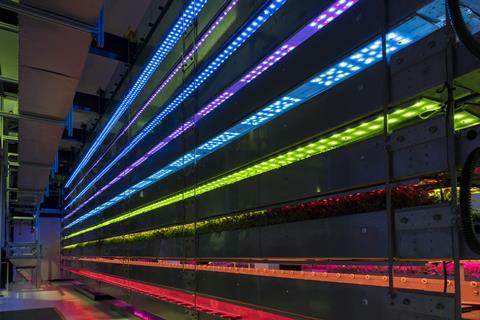Vertical Future highlights potential of controlled-environment-agriculture tech at Downing Street discussion

Vertical Future (VF), a UK-based Controlled-Environment-Agriculture (CEA) technology company, says collaboration in new tech could help tackle current challenges in the UK food and farming sector.
Speaking at the UK Farm to Fork Summit in Downing Street yesterday (14 May), VF founder and CEO Jamie Burrows said public-private collaboration is key to the future of food systems.
He said that innovative agritech companies like his could help propel the UK to reach its food security and environmental goals to “not only survive, but thrive and prepare for an uncertain future”.
VF designs, manufactures, and deploys intelligent, integrated, autonomous vertical farming systems globally with further use cases beyond food, such as pharmaceuticals, nutraceuticals, integration with greenhouses, and research and development for application in outer space (substantiated by a recent international grant with the UK Space Agency).
Burrows spoke during a breakout session at number 10, which covered the opportunities and barriers to innovation in the farming and food sector, including gene editing, automation, research and development, net zero innovation, and artificial intelligence.
Commenting on his contribution to the discussion, Burrows said: “It was an honour for Vertical Future to have been invited to represent the vertical farming and CEA sector more broadly at this year’s Farm to Fork Summit at Downing Street.
“Public-private collaboration is key to the future of our food systems and innovative agritech companies such as ours can help propel the UK to reach its food security and environmental goals to not only survive, but thrive and prepare for an uncertain future.”
He added: “As a business, we conduct extensive R&D and commercial activities with a growing number of industry, governmental and academic partners across the world, focused on improving CEA economics and increasing the quality and availability of crops for end-consumers.”



